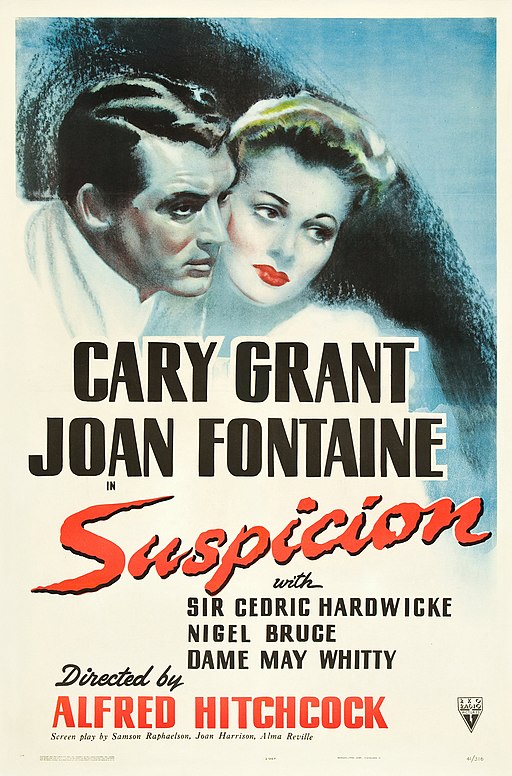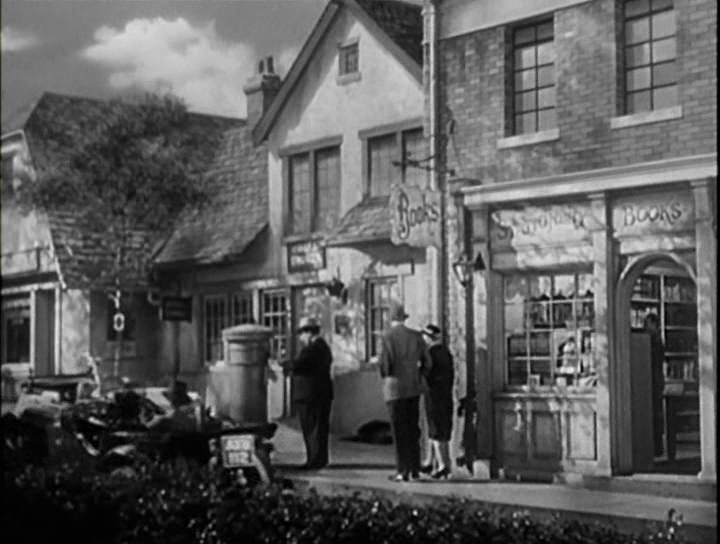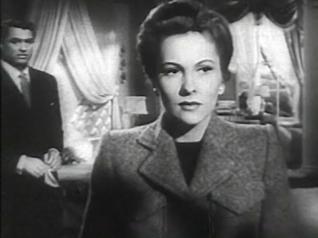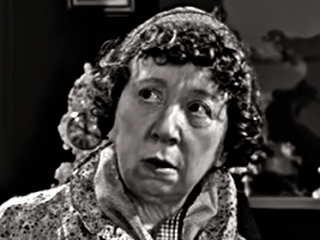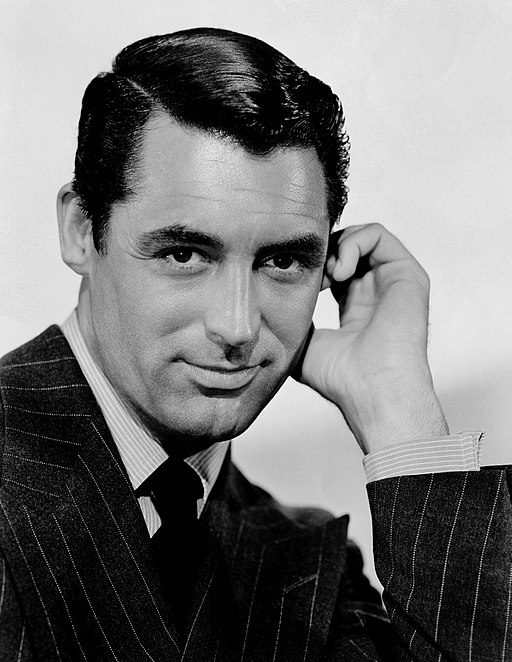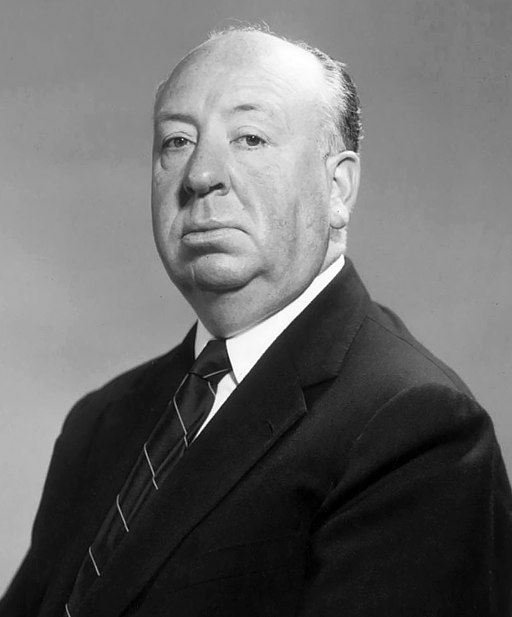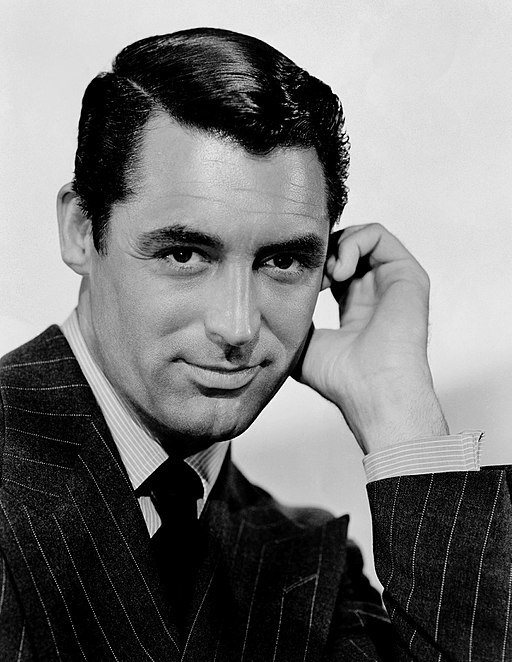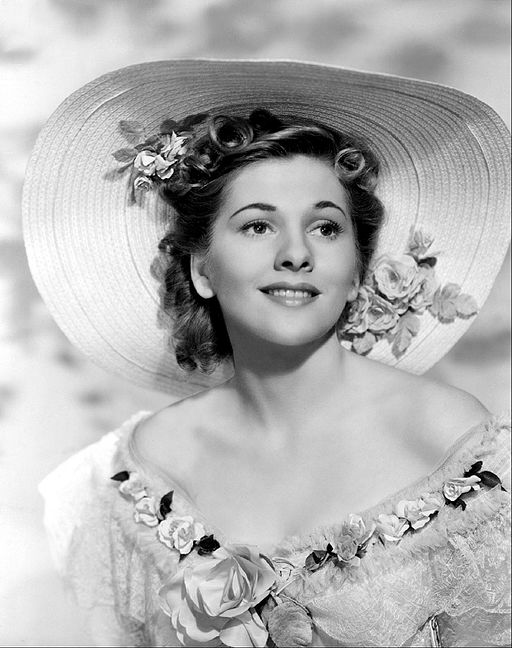Suspicion - 1941
back| Released by | RKO Radio Pictures |
| Director | Alfred Hitchcock |
| Producer | Harry E. Edington |
| Script | Samson Raphaelson, Joan Harrison, and Alma Reville, based on the 1932 novel Before the Fact by Francis Iles |
| Cinematography | Harry Stradling Sr. |
| Music by | Franz Waxman |
| Running time | 99 minutes |
| Film budget | $ 1,2 million |
| Box office sales | $ 4,5 million |
| Main cast | Cary Grant - Joan Fontaine - Cedric Hardwicke - May Whitty - Nigel Bruce |
Suspicion
A chilling tale of love entwined with suspicion
Suspicion is notable for its psychological depth, blending suspense and romance in a way that Hitchcock became renowned for. Joan Fontaine won an Academy Award for Best Actress for her role in the film, marking a rare occasion where an actor won an Oscar for a performance in a Hitchcock film.
The movie's narrative revolves around a wealthy but naive woman who marries a charming man, only to grow increasingly suspicious that he is planning to murder her for her inheritance. The film's tension, enhanced by Hitchcock's direction and the performances, makes it a classic of the suspense genre.
Related
Suspicion – 1941
Certainly! Suspicion (1941) is a masterful blend of suspense, romance, and psychological drama, directed by Alfred Hitchcock. It is a film that deftly explores themes of trust, love, and fear, wrapped in Hitchcock's signature style of suspenseful storytelling. The movie is based on the novel Before the Fact by Francis Iles, and its screenplay adaptation was handled by Samson Raphaelson, Joan Harrison, and Alma Reville.
Summary
The film begins with the chance meeting of the shy and wealthy Lina McLaidlaw (Joan Fontaine) and the charming but irresponsible playboy Johnnie Aysgarth (Cary Grant). Despite the warnings from her parents about his reputation, Lina is swept off her feet by Johnnie's charisma, and they marry quickly. However, Lina's initial bliss turns to apprehension as she discovers Johnnie's true nature: he is not only jobless but also a gambler with a penchant for lying and borrowing money.
Lina's suspicion towards Johnnie grows when his friend Beaky (Nigel Bruce) dies under mysterious circumstances, and she learns of Johnnie's previous intention to buy an untraceable poison. Her fear escalates to the point where she believes Johnnie plans to kill her for her life insurance money. The tension reaches its peak when Johnnie brings her a glass of milk late at night, leading her to suspect it's poisoned.
Analysis
Hitchcock masterfully crafts a psychological thriller that keeps audiences on the edge of their seats, playing with the ambiguity of Johnnie's intentions. The use of subjective perspective, primarily through Lina's eyes, allows the audience to share in her growing paranoia, questioning Johnnie's every action and motive.
Joan Fontaine delivers a nuanced performance as Lina, earning her an Academy Award for Best Actress. Her portrayal encapsulates the transformation from a naive, love-struck woman to someone consumed by dread and suspicion. Cary Grant's casting against type as the potentially malevolent Johnnie was a stroke of genius, leveraging his charm to both allure and alarm.
The cinematography by Harry Stradling Sr. and the score by Franz Waxman significantly contribute to the film's tense atmosphere. One of the most iconic scenes—the glowing glass of milk Cary Grant carries up the staircase—exemplifies Hitchcock's ability to imbue ordinary objects with ominous significance.
Despite its suspenseful build-up, Suspicion concludes on an ambiguous note, with Hitchcock being forced to alter the ending due to constraints from the studio, wishing to preserve Cary Grant's image as a leading man. This decision has been a point of contention among critics and audiences, with some feeling it undermines the film's previously escalating tension.
Conclusion
Suspicion remains a compelling watch, illustrating Alfred Hitchcock's adeptness at weaving suspense with complex emotional narratives. The film's exploration of the dynamics of trust within a relationship, coupled with its atmospheric tension, makes it a standout in Hitchcock's illustrious career. The performances by Joan Fontaine and Cary Grant, along with the film's technical mastery, underscore its status as a classic of the psychological thriller genre.
Classic Trailer of Suspicion 1941:
Full Cast of Suspicion:
Cary Grant as Johnnie Aysgarth
Joan Fontaine as Lina McLaidlaw Aysgarth
Cedric Hardwicke as General McLaidlaw (as Sir Cedric Hardwicke)
Nigel Bruce as 'Beaky' Thwaite
Dame May Whitty as Mrs. McLaidlaw
Isabel Jeans as Mrs. Newsham
Heather Angel as Ethel (the Maid)
Auriol Lee as Isobel Sedbusk
Reginald Sheffield as Reggie Wetherby
Leo G. Carroll as Captain Melbeck
The Capable Direction of Hitchcock:
Alfred Hitchcock's direction in Suspicion (1941) exemplifies his mastery of suspense and psychological drama, showcasing his ability to weave complex narratives with deep emotional undercurrents. Hitchcock's direction in this film is a testament to his nickname, "The Master of Suspense," demonstrating his unparalleled skill in manipulating audience emotions and expectations. Through innovative cinematography, meticulous pacing, and the subtle use of symbols, Hitchcock creates a tense atmosphere that keeps viewers on the edge of their seats.
Mastery of Suspense
Hitchcock's direction in Suspicion is characterized by his adept use of suspense, not just through the plot but through visual storytelling. He crafts suspense not by showing danger but by hinting at it, leaving enough to the audience's imagination to amplify the tension. One of the film's most iconic scenes, the glowing glass of milk, serves as a perfect example. The way Hitchcock lights the glass, making it appear almost luminous as it ascends the staircase in Johnnie's hand, turns an ordinary object into a symbol of potential doom. This scene encapsulates Hitchcock's ability to imbue everyday objects with profound significance, creating suspense from the mundane.
Psychological Depth
Hitchcock's films are renowned for their psychological complexity, and Suspicion is no exception. Through his direction, the audience delves deep into Lina's psyche, experiencing her love, fear, and growing paranoia. Hitchcock skillfully uses subjective shots to align viewers with Lina's perspective, making her psychological descent palpable. The use of tight close-ups, shadowy lighting, and ambiguous dialogue adds layers to the characters, inviting viewers to question what is true and what is merely suspicion.
Visual Storytelling
Hitchcock's visual style in Suspicion is both sophisticated and innovative. He uses cinematography to enhance the narrative's psychological tension, employing shadows, unusual camera angles, and the interplay of light and dark to symbolize the characters' internal conflicts. The visual contrast between the bright, opulent settings and the dark, suspenseful moments reflects the duality of Johnnie's character and Lina's fluctuating perception of him.
Pacing and Structure
The pacing of Suspicion is meticulously controlled by Hitchcock, gradually building tension and suspense as the story unfolds. He expertly balances quieter, character-driven moments with scenes of high tension, ensuring that the audience's attention is captured throughout. Hitchcock's ability to maintain a slow burn of suspense, culminating in intense climactic moments, showcases his understanding of narrative structure and timing.
The Splendid Performance of Joan Fontaine:
Joan Fontaine's performance in Suspicion (1941) stands as a pivotal element of the film's success, showcasing her exceptional talent and contributing significantly to the movie's emotional depth and psychological complexity. Fontaine's portrayal of Lina McLaidlaw Aysgarth earned her an Academy Award for Best Actress, a testament to the strength and nuance of her performance.
Emotional Depth
Fontaine brings a remarkable emotional depth to the character of Lina, a wealthy but naive woman who falls in love with the charming yet enigmatic Johnnie Aysgarth, played by Cary Grant. From the outset, Fontaine masterfully conveys Lina's initial innocence and romantic idealism, her expressions and body language radiating the joy and excitement of new love. As the narrative progresses and Lina's suspicions about her husband's intentions grow, Fontaine skillfully transitions her portrayal to one of increasing fear, doubt, and internal turmoil. Her ability to convey a wide range of emotions, often within a single scene, adds a rich layer of complexity to the character, making the audience empathize with her predicament deeply.
Subtlety and Complexity
One of the hallmarks of Fontaine's performance is her subtlety, particularly in scenes where Lina grapples with her growing suspicions of Johnnie. Fontaine's nuanced facial expressions and restrained emotional displays capture the essence of a woman torn between her love for her husband and her fear of his potential malevolence. This subtlety is crucial in maintaining the film's suspense, as it leaves the audience guessing about Johnnie's true nature and intentions. Fontaine's performance is a study in the power of understatement, demonstrating how minimal gestures and changes in expression can convey profound emotional states.
Chemistry with Cary Grant
Fontaine's on-screen chemistry with Cary Grant is another critical aspect of her performance. The dynamic between Lina and Johnnie is at the heart of Suspicion, and Fontaine and Grant's interactions convincingly depict a complex relationship marked by love, charm, and an undercurrent of tension. Fontaine's ability to play off Grant's suave, confident demeanor amplifies the sense of unease, making the audience question Johnnie's trustworthiness along with Lina. Their scenes together, ranging from tender romantic moments to tense confrontations, highlight Fontaine's versatility as an actress.
Contribution to the Film's Impact
Fontaine's portrayal of Lina is integral to the film's psychological impact. Through her performance, she embodies the themes of trust, fear, and the fine line between perception and reality that Hitchcock sought to explore. Fontaine's Lina becomes the emotional center of the film, guiding the audience through a rollercoaster of sentiments and leaving a lasting impression on the viewer. Her ability to evoke sympathy and identification makes Lina's journey a compelling narrative of love overshadowed by suspicion.
Notable Quotes from the Movie:
Johnnie Aysgarth (Cary Grant) to Lina McLaidlaw (Joan Fontaine): "Monkey face, I've been broke all my life!"
This affectionate nickname "Monkey face" used by Johnnie for Lina adds a personal touch to their relationship, while also revealing Johnnie's casual attitude towards his financial instability.
Lina McLaidlaw (Joan Fontaine): "I'm afraid. I'm afraid of the dark, afraid of the unknown."
Lina expresses her deep-seated fears, which not only relate to her suspicion towards Johnnie but also reflect her internal struggles and vulnerabilities.
Johnnie Aysgarth (Cary Grant): "You think I'm a murderer. A thought like that could ruin a person's appetite."
This quote encapsulates the tension and suspicion that defines Johnnie and Lina's relationship throughout the film, with Johnnie's light-hearted response masking deeper issues.
Lina McLaidlaw (Joan Fontaine): "I've been the victim of my imagination."
Lina acknowledges the role her imagination has played in escalating her fears, highlighting the film's exploration of perception versus reality.
Beaky (Nigel Bruce): "I can't tell you how fond I am of Johnnie, and how much I admire him. He's got more charm than anyone I've ever known."
Beaky's quote reflects the general perception of Johnnie's character by others, contrasting sharply with Lina's growing suspicions and fears.
Johnnie Aysgarth (Cary Grant): "There's one thing I do know. That's that I love you, Lina. Strange that I could feel that so strongly and be afraid of you."
This quote reveals the complex emotions Johnnie harbors towards Lina, blending love with a hint of fear, adding layers to their complicated relationship.
Lina McLaidlaw (Joan Fontaine) about Johnnie: "He thinks he can get away with anything. That's his trouble. I think he's mad. He's like a child who thinks that if he closes his eyes, you can't see him."
Lina's reflection on Johnnie's character underscores the theme of denial and the dangerous naivety that Johnnie exhibits.
Awards and Recognition:
Academy Awards (1942)
Won:
Best Actress in a Leading Role: Joan Fontaine for her role as Lina McLaidlaw Aysgarth. This win marked a significant achievement for Fontaine, being her only Oscar win out of three nominations during her career.
Nominated:
Best Picture: Suspicion was nominated for the Academy Award for Best Picture, showcasing its overall excellence and reception by the film industry and audiences alike.
Best Music, Scoring of a Dramatic Picture: Franz Waxman was nominated for his score for Suspicion, which played a crucial role in setting the film's suspenseful and dramatic tone.
These nominations and the win highlight Suspicion's impact and recognition within the industry, particularly emphasizing Joan Fontaine's performance, which is often cited as one of the finest in Hitchcock's films. Despite its few nominations, the film's critical and commercial success solidified Alfred Hitchcock's reputation as a master filmmaker and remains a significant part of his legacy.

